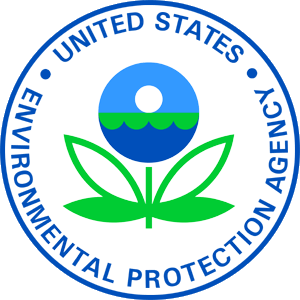Biden-Harris Administration Issues Final Rule Requiring Replacement of Lead Pipes Within 10 Years, Announces Funding to Provide Clean Water to Schools and Homes
EPA announces new final regulations and $2.6 Billion under the Biden-Harris Administration’s Investing in America agenda for clean drinking water
WASHINGTON – Today, October 8, the Biden-Harris Administration issued a final rule requiring drinking water systems across the country to identify and replace lead pipes within 10 years. The Lead and Copper Rule Improvements (LCRI) also require more rigorous testing of drinking water and a lower threshold requiring communities to take action to protect people from lead exposure in water. In addition, the final rule improves communication within communities so that families are better informed about the risk of lead in drinking water, the location of lead pipes, and plans for replacing them. This final rule is part of the President’s commitment to replace every lead pipe in the country within a decade, making sure that all communities can turn on the tap and drink clean water.
EPA estimates that up to 9 million homes are served through legacy lead pipes across the country, many of which are in lower-income communities and communities of color, creating disproportionate lead exposure burden for these families. Eliminating lead exposure from the air people breathe, the water people drink, and the homes people live in is a crucial component of the Biden-Harris Administration’s historic commitment to advancing environmental justice.
The Lead and Copper Rule Improvements establish achievable, common-sense practices which have been implemented by several states and cities. The public health and economic benefits of the final rule are estimated to be up to 13 times greater than the costs, and together with new funding announced today under Biden-Harris Administration’s Bipartisan Infrastructure Law, water systems will be able to accelerate removal of lead pipes and create good-paying local jobs in the process.
“We’ve known for decades that lead exposure has serious long-term impacts for children’s health. And yet, millions of lead service lines are still delivering drinking water to homes,” said EPA Administrator Michael S. Regan. “President Biden is putting an end to this generational public health problem. With the Lead and Copper Rule Improvements and historic investments in lead pipe replacement, the Biden-Harris Administration is fulfilling its commitment that no community, regardless of race, geography, or wealth, should have to worry about lead-contaminated water in their homes.”
“The EPA’s new lead rule will begin to reverse the massive public health disaster of lead-contaminated tap water that has affected generations of our children. Every person has a right to safe and affordable drinking water, no matter their race, income, or zip code,” said Manish Bapna, president and CEO of NRDC (Natural Resources Defense Council). “NRDC has had the privilege of working with residents of Flint, Newark, Chicago and beyond to help secure this meaningful rule and stop the flow of toxic lead from the tap into water glasses in homes across the nation.”
“A game changer for kids and communities, EPA’s finalized lead and copper rule improvements will ensure that we will never again see the preventable tragedy of a city, or a child, poisoned by their lead pipes,” said Mona Hanna, Flint, Michigan pediatrician and Associate Dean for Public Health at Michigan State University College of Human Medicine. “I commend the Biden-Harris administration for their steadfast efforts to finally update this ancient rule, and I am thrilled that this rule proactively centers our children and their potential. The children win!”
The science is clear: Lead is a potent neurotoxin and there is no safe level of lead exposure, particularly for children. In children, lead can severely harm mental and physical development, slow down learning, and irreversibly damage the brain. In adults, lead can cause increased blood pressure, heart disease, decreased kidney function, and cancer. If someone is impacted by lead exposure, there is no known antidote, according to the Centers for Disease Control and Prevention. The Lead and Copper Rule Improvements strengthen nationwide requirements to protect children and adults from these significant and irreversible health effects from lead in drinking water.
Communities across the country have already begun to tackle lead pipes.
- Milwaukee Water Works is on track to replace all remaining lead pipes within the EPA’s ten-year timeframe. In 2024 alone, Milwaukee received approximately $30 million in Bipartisan Infrastructure Law funding to replace 3,400 lead service lines.
- The Detroit Water and Sewerage Department has received $90 million from the Administration and will replace more than 8,000 lead service lines this year, putting the city on track to replace all lead pipes in 10 years.
- The Erie, Pennsylvania Water Works has received $49 million from EPA to enable the city to replace all lead pipes within 5 years instead of 25 years.
- Denver Water has accelerated its efforts through $76 million from the Bipartisan Infrastructure Law, allowing the city to be on track to replace all lead pipes within a decade.
The Lead and Copper Rule Improvements will help protect millions of Americans from exposure to lead in drinking water. EPA estimates that on average, every year after the LCRI is issued it will:
- protect up to 900,000 infants from having low birthweight.
- prevent Attention-Deficit Hyperactivity Disorder (ADHD) in up to 2,600 children.
- reduce up to 1,500 cases of premature death from heart disease.
- prevent up to 200,000 IQ points lost in children.
Investments in identifying lead pipes, planning for their removal, and replacing them will create jobs in local communities while strengthening the foundation of safe drinking water that supports economic opportunity.
For more information about the final rule, including a pre-publication version of the federal register notice and fact sheets, visit the rule webpage.
Background
EPA is taking a comprehensive approach to getting the lead out, including:
- Regulatory Framework: EPA’s final Lead and Copper Rule Improvements follow the science and EPA’s authority under the Safe Drinking Water Act to strengthen regulatory requirements to address lead in drinking water.
- Funding: The Bipartisan Infrastructure Law provides $50 billion to support upgrades to the nation’s drinking water and wastewater infrastructure. This includes $15 billion over five years dedicated to lead service line replacement and $11.7 billion of general Drinking Water State Revolving Funds that can also be used for lead service line replacement. There are a number of additional pathways for systems to receive financial support for lead service line replacement. These include billions available as low- to no-cost financing through annual funding provided through the Drinking Water State Revolving Fund (DWSRF) program and low-cost financing from the Water Infrastructure Finance and Innovation Act (WIFIA) program. Funding may also be available from other federal agencies, state, and local governments. These efforts also advance the Biden-Harris Administration’s Justice40 Initiative, which sets the goal that 40% of the overall benefits of certain Federal investments flow to disadvantaged communities that are marginalized by underinvestment and overburdened by pollution.
- Technical Assistance: EPA’s water technical assistance (WaterTA), including the LSLR Accelerators and the Get the Lead Out Initiative, helps communities identify lead services lines, develop replacement plans, and apply for funding, including DWSRF funding, to get the lead out.
- Practical Implementation Tools: Through training, tools, webinars, and case studies, EPA provides support to drinking water systems to reduce lead exposure.
NOTE: This press release was submitted to Urban Milwaukee and was not written by an Urban Milwaukee writer. While it is believed to be reliable, Urban Milwaukee does not guarantee its accuracy or completeness.
More about the Lead Crisis
- Gov. Evers Signs New PFAS, Lead Regulations - Danielle Kaeding - Mar 2nd, 2026
- City Receives $400,000 Grant For Lead Screening - Sophie Bolich - Feb 24th, 2026
- Rep. Madison Proposes Restoring Local Control Over Lead Inspections - State Rep. Darrin Madison - Jan 6th, 2026
- $43 Million Later, MPS Says Classrooms Are Safe From Lead Dust - Corrinne Hess - Dec 18th, 2025
- MPS Buildings Cleared of Lead-Paint Risks after 10-Plus Months of Work - Milwaukee Public Schools - Dec 17th, 2025
- Wisconsin Moves to Require Lead Service Lines Replaced By 2037 - Danielle Kaeding - Dec 11th, 2025
- Gov. Evers, DNR Announce More Than $159 Million to Ensure Clean, Safe Drinking Water for Wisconsinites in 29 Municipalities - Gov. Tony Evers - Dec 10th, 2025
- EPA Announces $3 Billion in New Funding for States to Reduce Lead in Drinking Water - U.S. Environmental Protection Agency - Nov 25th, 2025
- Wisconsin Communities Get $282 Million for Drinking Water Projects - Danielle Kaeding - Nov 19th, 2025
- MKE County: County Launches Lead Abatement Program - Graham Kilmer - Nov 9th, 2025
Read more about Lead Crisis here
Mentioned in This Press Release
Recent Press Releases by U.S. Environmental Protection Agency
EPA Announces $3 Billion in New Funding for States to Reduce Lead in Drinking Water
Nov 25th, 2025 by U.S. Environmental Protection AgencyAdditionally, $1.1 Billion of Unused Funding Redistributed for States
EPA Releases Draft Health-Based Recommendations for PFAS Levels in Bodies of Water
Dec 19th, 2024 by U.S. Environmental Protection AgencyCriteria can be used to inform water quality standards to protect people from exposure to PFAS





















